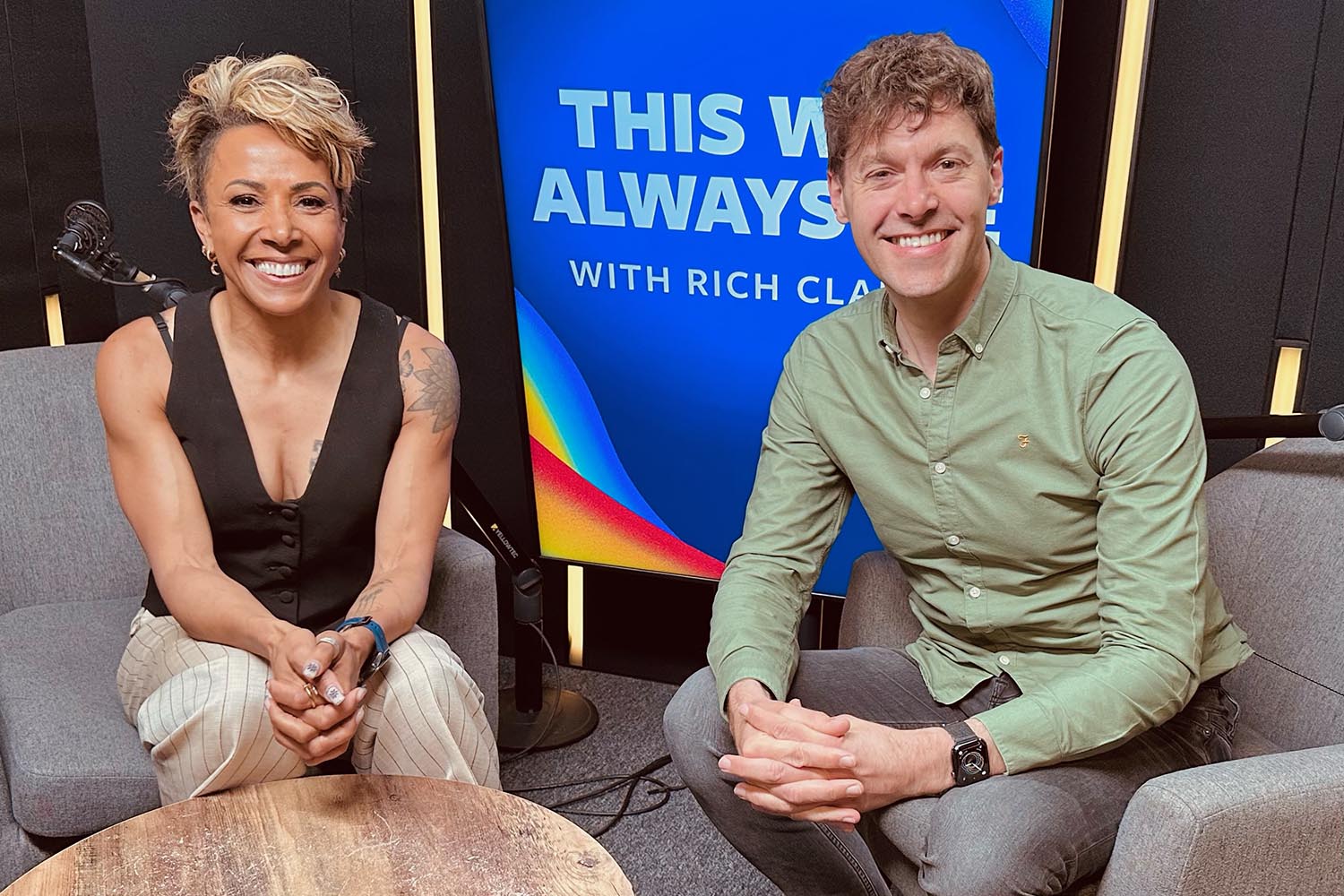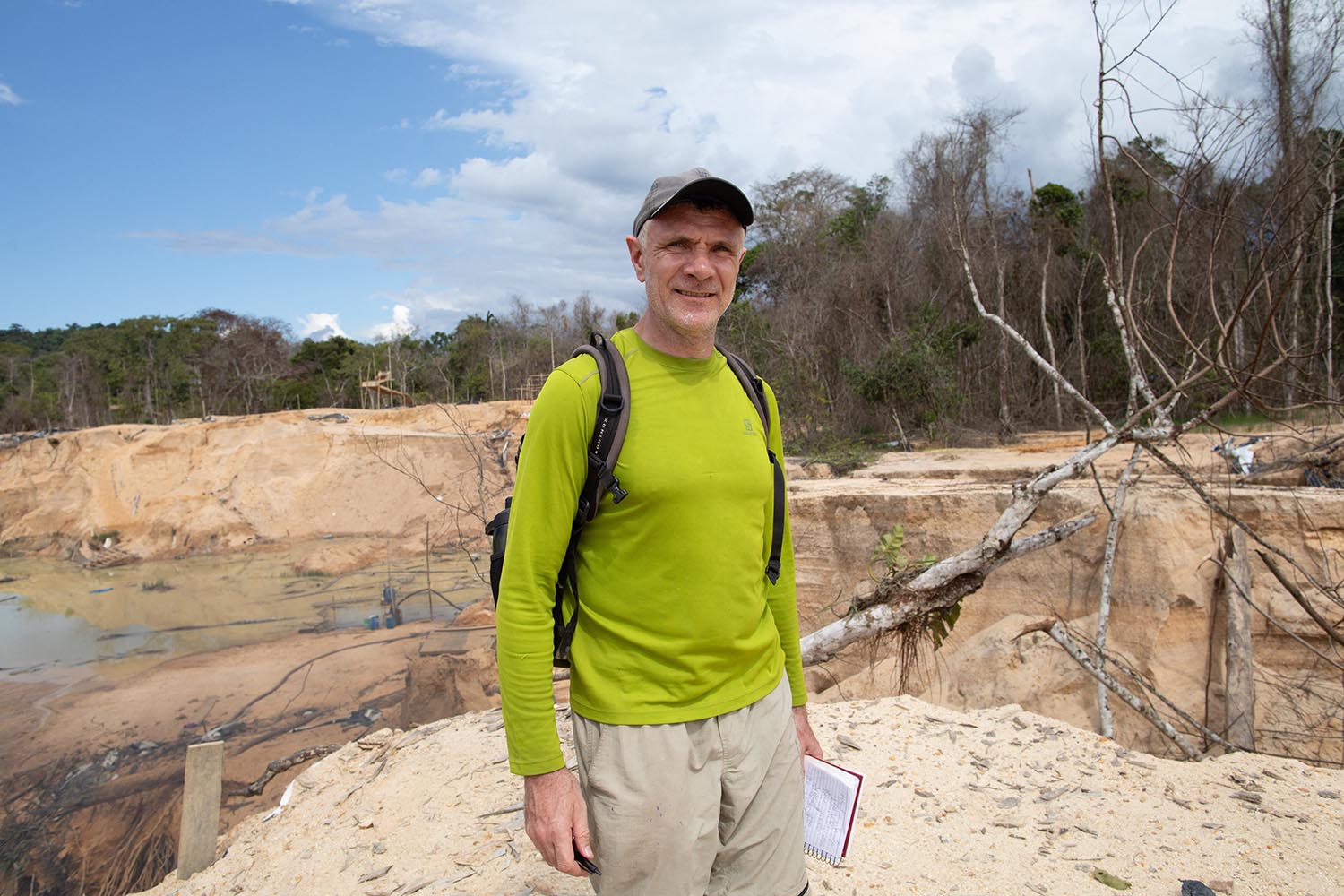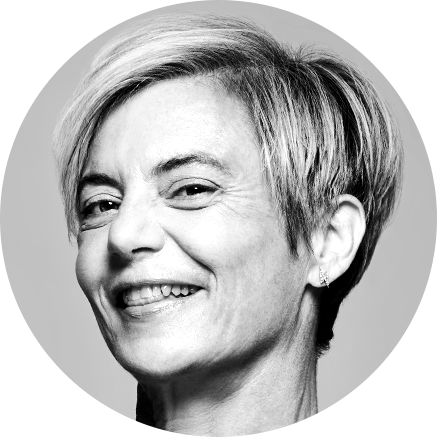Missing in the Amazon, an investigative series by the Guardian, is about one of its own: journalist Dom Phillips. Dom was a lovely man, a friend of mine and many others. I met him when he was working for Mixmag during the 90s, before his switch to “proper” journalism as a Guardian correspondent based in Brazil. In 2022, Dom, who was writing a book about the Amazon, went missing, along with his friend Bruno Pereira, an expert on, and defender of, indigenous people. This series is about what happened to them.
It’s presented by Tom Phillips, another Guardian journalist and friend of Dom’s (not a relative, though he acknowledges the similarity between their names: “We joked that we could have formed a country group, Dom y Tom”). Phillips’s script is clear and unfrilly, gradually painting a bigger picture than two people unexpectedly disappearing.
The first episode is concerned with the initial, dreadful few days after Dom and Bruno go missing. Episode two sets up who Dom was as a person, and we hear from his Mixmag friends, who fondly recall Dom scrapping with superstar DJ Sasha (“a wrestling match outside the Ministry of Sound… a shit fight”). We also hear from his Brazilian wife, Alessia. She describes their relationship as a “very special symphony” and Dom’s samba dancing as “horrible, but it doesn’t matter”.
I marvelled at how Dom became a celebrity in Brazil for asking then president Bolsonaro a question about protecting the environment. Bolsonaro answered: “You stupid foreigners need to understand that the Amazon is Brazilian. It’s not yours”, and the encounter went viral on social media, putting Dom at risk.
Episode three is about Bruno, “so respected he was given a name in three different indigenous cultures”, and how some people, who’d been encouraged to make their homes and livelihoods in the Amazon for decades, stomping all over and exploiting the indigenous people’s land, were then told to leave by the government. This caused a “seething of resentment toward indigenous people… and the institutions that seek to protect the environment”.
It’s all interesting, but the pace seems leisurely to me – though that might well be because, unlike most investigative shows, I already know this story. Let’s hope that the lengthy setup doesn’t come at the expense of attention, not only for Dom and Bruno’s sake, but also for our own. This is an enormously shocking story that starts small and deadly but ends up involving the whole planet.
Last week’s The Essay on Radio 3 was about musical instruments and their owners. And if you think that sounds like the instruments are pets, well, yes. Or maybe more: friends? Certainly, the musicians interviewed in Instrumental seemed to regard them as, at least, collaborators. “I think we’re a lot more trusting of each other,” said Timothy Rundle, who’s principal oboist of the Philharmonia, about his instrument, though he did catch himself: “Oh, I said I wouldn’t give it a personality!”
Alan Hall, himself a trumpet player, interviewed with humour and care. Touchingly, each musician considered their instrument to be the best one. The trumpet is “honest”, said Kim Moore, a poet who wrote a book called What the Trumpet Taught Me, because it just sounds out what your mouth does, “like a loudhailer”. Consider the oboe, said Rundle: its reed means it sounds different every day: “It has a really unique voice… it grabs you by your heart.” Each of the five episodes was a conversation that often emphasised the actual physicality of making music: the practice, the maintenance, the particular sounds of different areas of the tabla drum, how you have to clean the strings of a bass with a paintbrush because your fingers literally come off on them. Delightful.
On Global, This Was Always Me is a new series of interviews with interesting LGBTQ+ people, conducted by Rich Clarke, a gay man who says, heartbreakingly, in his intro that when he was younger, “if I could have switched off being gay, I would have done”. A reminder of what Pride is actually about.

‘Revealing and tender’: On Global, Kelly Holmes appears on This was Always Me, a new series of interviews with interesting LGBTQ+ people conducted by Rich Clarke
The first show features Olympic champion Kelly Holmes. We’re used to thinking of Holmes as a huge, open-hearted success, but, as she tells Clarke, she was stymied when she was younger. She couldn’t live her life as a lesbian, because she was in the army in the 90s, when there was a gay ban in the military. And – I don’t think I’d realised this – the ban was actively enforced. Holmes described having her barracks accommodation torn apart by military police, “like burglars”, there to check on her sexuality. You wonder what they were looking for. And then she tells us: “We put our belongings in the back of the car, even letters from my sisters, because they were women saying they loved me.”
Newsletters
Choose the newsletters you want to receive
View more
For information about how The Observer protects your data, read our Privacy Policy
Holmes knows people who were “caught” and then bundled out of the military with big red letters stamped on their papers DISCHARGED WITH DISHONOUR. It all scared her so much that even after leaving the army, she couldn’t publicly claim her sexuality. “I thought they’d throw me in jail,” she said. “Because if I said I was gay then that would mean I had been gay while I was in the army.” Shockingly, she only felt secure enough to come out two years ago.
In episode two, Clarke interviews an 82-year-old who’s just had gender-affirming surgery. Isobel, as she is now, is a gentle soul whose wife bought dresses to fit them both when they were younger. These are revealing and tender interviews, and I recommend them all.
Photograph by AFP/Getty Images

